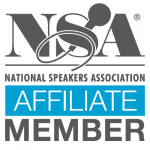I eclipsed the age of 30 yesterday, which of course beckons some introspection. I’ve done a lot since August of 1985.
I won second place in an essay/drawing contest to create a character for Donkey Kong Country 3 (won a Nintendo t-shirt.)
I pogostick’d 500 times in a row.
I faked my own birthday in preschool by writing a card to myself (got cupcakes and a balloon—awesome.)
I graduated from the University of Central Florida.
I recently packed a bag and traveled to Europe for a month.
Suffice to say, the previous 29 years have been pretty kind, and I’ve been fortunate to have encountered some fantastic individuals along the way—namely in my professional life. PR/PR alums Amanda and Lindsay—who are dearly missed—were confident enough in my abilities to give the thumbs up that catalyzed my journey with this company. Russell believed in me enough to bring me onboard, allow time and patience for me to find my voice, and eventually make me an agent.
If I’m being introspective about my 20’s, the trust that my PR/PR family put in me has been one of my biggest blessings. I’ve worked in an environment full of trust, creative freedom and friendship. I’ve been afforded the privilege of working daily with some brilliant clients and contributing to their success.
My time with PR/PR has been an immense joy. While turning 30 is daunting (depressing), I can’t wait to see what the future holds.





